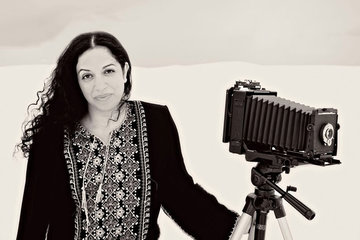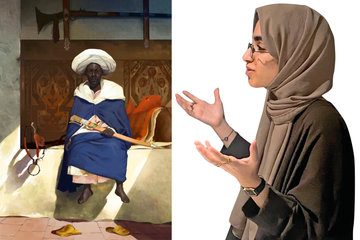
Set in 19th century Lebanon, Desmond Astley-Cooper’s debut novel, “In the Time of the Mulberry,” takes us back in time to trace the journey of Maryam. Living in the village of Al-Louz, the young woman’s world changes forever when war breaks out across Mount Lebanon. Two city women, Layal and Rose, come to the village by different paths to escape the fighting and encounter Maryam, and their meeting results in a deep friendship which changes their lives forever.
“In the Time of the Mulberry,” published by Turning Point, blends history, legends and local traditions as the lives of these three courageous women intersect in the desperate days of war. Although from different backgrounds, they share the same dreams and desires: to find love and independence in a changing world, as Lebanon’s rural way of life makes way for the silk industry.
Maryam falls in love with a young man outside her confession, but, as she is forbidden to marry outside her faith, she hides her feelings. She moves on to work as a spinner at the local silk factory, a bold decision at a time when the role of women was restricted to domestic duties. In fact, Lebanon’s silk industry in Mount Lebanon made it possible for Lebanese women to work and make money for the first time. Eventually, she settles for an arranged marriage to please her parents, a union that shatters her dreams of love.

Layal, a widow who witnessed the brutal murder of her husband, fled with her young son to the safety of Al-Louz; her path continues to the capital Beirut, where she accepts the marriage proposal of a diplomat and settles into a privileged lifestyle. Rose, an orphan, works relentlessly for years at the silk factory, then follows her dream and immigrates overseas to America.
““In the Time of the Mulberry” traces volatile relationships, among various communities and within families themselves. Be it a disagreement between father and daughter or a clash among villagers of different faiths, these events all find their way into this vivid story,” George Asseily, owner of the Silk Museum in Bsous, Mount Lebanon, comments in his preface to the novel. “Though fictional, it nonetheless peers into a part of Lebanese history that is often brushed aside or simply ignored.”
"Lebanon has long fascinated me because of the diversity of its people,” Astley-Cooper says. “And I find the second half of the19th century especially interesting because of the impact the silk industry had on the inhabitants of Mount Lebanon, particularly the women.”
After studying Arabic and Persian Literature at St. Peter's College, Oxford, Astley-Cooper began his career as a journalist before entering the world of banking and finance. He spent several years working in the Middle East as a financial consultant. An avid hiker, he has trekked across Lebanon over the past few years, discovering the remote rural villages and their intrepid inhabitants.

















